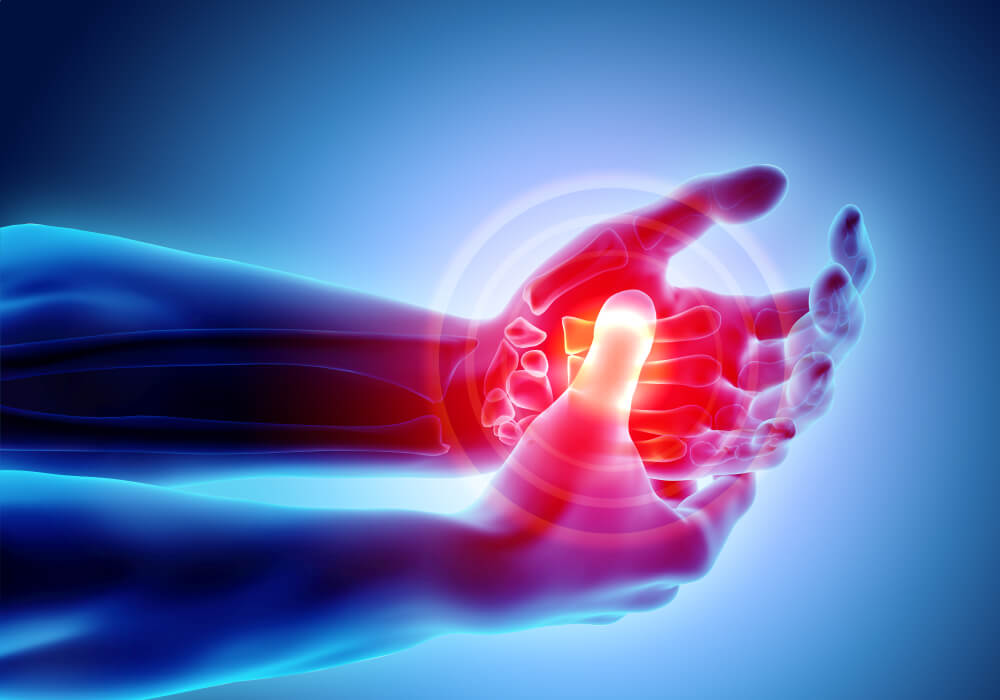Rheumatoid arthritis is a disease that affects all joints of the body, when this occurs it usually causes very uncomfortable symptoms, such as persistent pain, inflammation, loss of mobility and stiffness in the affected areas, its causes are unknown so far, but some research has found a link between negative emotions and rheumatoid arthritis.
The importance of psychology during this disease began to be considered in the early twentieth century, however, this relationship was not seriously studied until after 1950, when rheumatoid arthritis began to be classified as one of the most important psychosomatic disorders. From now on, more and more research has emerged on the subject.
- In this article we will study the data obtained to date on the relationship between negative emotions and rheumatoid arthritis.
- We will also understand some of the most important characteristics of this disease.
- In addition to offering some tips to be able to live with it in the best way.
Next, we will study some of the most common symptoms and characteristics of this disease, all of which occur in the main joints of the body.
The most commonly affected are the wrists and joints of the fingers, but this change can occur anywhere in the body where one or more bones join.
For example, symptoms of rheumatoid arthritis may be found in the following areas:
Depending on who has the disease, symptoms can vary widely, with the most common being: swelling, lack of mobility, a burning sensation, tenderness, and pain.
Let’s look at each one of them
Often, the first symptom of rheumatoid arthritis is inflammation of the affected joints, which can become much larger than normal during an acute episode of the disease.
When the disorder is not severe, swelling may appear in isolation; in the most severe cases, it is usually accompanied by pain.
In general, increased joint size makes it difficult to move, and when this symptom becomes particularly severe, the person may find it difficult to perform certain actions in their normal life.
Symptoms of rheumatoid arthritis are often accompanied by an uncomfortable burning sensation in the affected areas. This usually only causes a slight discomfort. However, in addition to the rest of the symptoms, this sensation can become an obstacle in the lives of those with this disease.
In addition to all of the above discomfort, people with rheumatoid arthritis also experience increased sensitivity in the affected joints, so all sensations will be amplified. This also influences increased pain, the next symptom we’ll discuss.
The worst symptom that people affected by this disease usually describe is acute pain every time they make certain movements or hit, even slightly, one of the joints.
It can make them disabled to the point where it becomes something that prevents them from living a normal life.
What is the relationship between negative emotions and rheumatoid arthritis?Recent research has shown that certain emotional states can lead to an increase in the most problematic symptoms, as well as directly increasing the chances of developing this problem.
Of all the emotions we can feel, the most related to this problem are depression, anxiety and anger; otherwise, characteristics such as efficacy or resistant personality often correlate with less pronounced symptoms when this disease is already present.
The truth is that there is no known unique cause of this disease, however, the relationship between negative emotions and rheumatoid arthritis is particularly well documented, so many doctors consider that the best treatment to deal with this problem is to work on the sentimental aspect of patients.
Thus, better understanding and emotional expression can be very effective in reducing, among other things, pain. Although symptoms don’t go away completely in most cases, many patients can significantly improve their quality of life by working on their emotions.
Therefore, it is essential to adequately cope with this disease to overcome it, in this way, if you experience any of the symptoms or know someone who suffers from them, do not hesitate to look for or recommend a mental health professional who can help you. combat the most acute symptoms of the problem.

